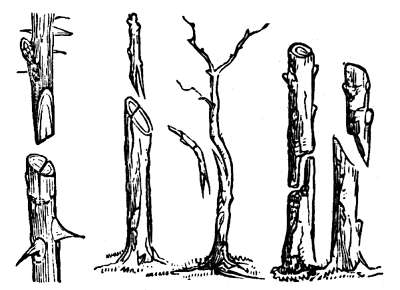The Grafting
The concept of "grafting" in the Christian Messianic Hebrew Roots movement is a profound illustration of spiritual inclusion and identity. This metaphor, deeply rooted in the teachings of the Apostle Paul, particularly in his letter to the Romans, encapsulates the transformative journey of faith for believers in Yeshua (Jesus Christ). It signifies that upon embracing faith in Christ, an individual is spiritually integrated or 'grafted' into the Olive Tree of Israel, symbolizing their adoption into God's covenant family.
Romans 11:11-24 (CJB) “In that case, I say, isn’t it that they have stumbled with the result that they have permanently fallen away?” Heaven forbid! Quite the contrary, it is by means of their stumbling that the deliverance has come to the Gentiles, in order to provoke them to jealousy.
12 Moreover, if their stumbling is bringing riches to the world — that is, if Isra’el’s being placed temporarily in a condition less favored than that of the Gentiles is bringing riches to the latter — how much greater riches will Isra’el in its fullness bring them!
13 However, to those of you who are Gentiles I say this: since I myself am an emissary sent to the Gentiles, I make known the importance of my work 14 in the hope that somehow I may provoke some of my own people to jealousy and save some of them! 15 For if their casting Yeshua aside means reconciliation for the world, what will their accepting him mean? It will be life from the dead!
16 Now if the hallah offered as firstfruits is holy, so is the whole loaf.
And if the root is holy, so are the branches.
17 But if some of the branches were broken off, and you — a wild olive — were grafted in among them and have become equal sharers in the rich root of the olive tree, 18 then don’t boast as if you were better than the branches! However, if you do boast, remember that you are not supporting the root, the root is supporting you.
19 So you will say, “Branches were broken off so that I might be grafted in.”
20 True, but so what? They were broken off because of their lack of trust. However, you keep your place only because of your trust. So don’t be arrogant; on the contrary, be terrified!
21 For if God did not spare the natural branches, he certainly won’t spare you!
22 So take a good look at God’s kindness and his severity: on the one hand, severity toward those who fell off; but, on the other hand, God’s kindness toward you — provided you maintain yourself in that kindness! Otherwise, you too will be cut off!
23 Moreover, the others, if they do not persist in their lack of trust, will be grafted in; because God is able to graft them back in.
24 For if you were cut out of what is by nature a wild olive tree and grafted, contrary to nature, into a cultivated olive tree, how much more will these natural branches be grafted back into their own olive tree!”

Paul's discourse in Romans 11:11-24 (Complete Jewish Bible) is pivotal in understanding this concept. He articulates that the stumbling of Israel, paradoxically, became the conduit for Gentile salvation, serving a dual purpose: to bring salvation to the Gentiles and to incite a holy jealousy in Israel, leading them back to faith. This passage is rich in its theological implications, underscoring both the kindness and severity of God in His dealings with humanity.
A critical aspect of this grafting metaphor is the relationship between the original branches (Israel) and the wild branches (Gentiles). Contrary to some interpretations, the Olive Tree into which believers are grafted is not Israel itself, but rather represents the messianic lineage stemming from Jesse, culminating in Jesus Christ. This distinction is crucial, as it emphasizes that Christ is the foundation and sustainer of this spiritual tree.
The root of this tree symbolizes God the Father, the origin and sustainer of all existence. The life-giving sap, representative of the Holy Spirit, flows from the Father, permeating the entire tree and sustaining both natural and grafted branches. This vivid imagery illustrates the Trinitarian nature of God's work in salvation.
In the process of grafting, an olive tree is prepared by removing its branches, symbolizing the severance of unbelieving Israel from the covenant of grace through Christ. However, the possibility of being re-grafted signifies God's enduring faithfulness and mercy. Believers, both Jewish and Gentile, are grafted into this tree through faith, not by birthright or ethnicity. This grafting does not alter their ethnic identity; rather, it transforms their spiritual identity.
The unity of Jew and Gentile in Christ, often referred to as the 'one new man', is a profound mystery revealed in the New Testament. This unity does not erase distinct cultural or ethnic identities but transcends them, creating a new spiritual identity in Christ. This new identity does not negate ethnic distinctions but rather celebrates them within the unity and diversity of the body of Christ.
In conclusion, the metaphor of grafting beautifully encapsulates the inclusive nature of God's salvation plan, where Jew and Gentile alike, through faith, partake in the life-giving nourishment from the Root—Jesus Christ. This spiritual union in Christ forms the core of our identity as believers, transcending all other distinctions and uniting us in the shared pursuit of glorifying God and living out the truths of the Gospel.







